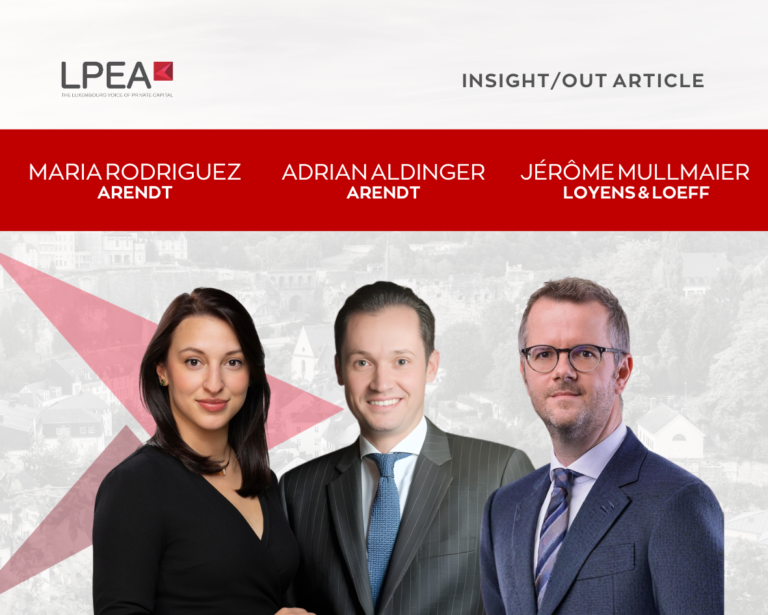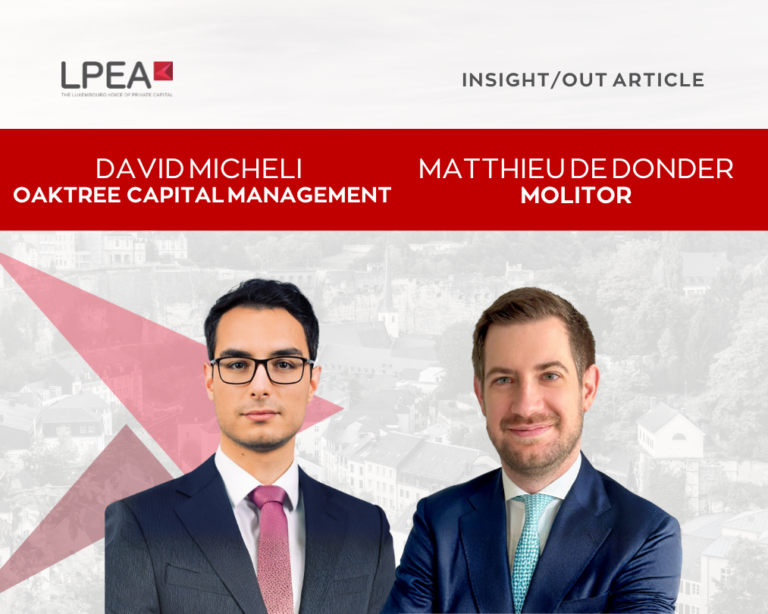Luxembourg: The Private Equity Hub That Asset Managers Deserve
by David Capocci, Partner at KPMG
In the midst of the current business environment, which is characterised by political changes like Brexit and a frenzy of entrepreneurship, Luxembourg is becoming more and more of a private equity hub. Asset managers formally set up in Britain, though no less others seeking a European base, are tending to find this small, lovely country an ideal location for developing their businesses.
Luxembourg’s credentials are numerous, but the most remarkable ones in its toolkit are perhaps its diversity and inclusivity, assets that have featured in the daily lives of Luxembourgers for decades. As a result, Luxembourg is keen to welcome new skills, very often with attractive remuneration packages.
Cut out for asset managers
Asset managers in particular are incentivised through various schemes, with tax treatments that depend on their structures but which can often be quite favourable. For example, capital gains on securities in Luxembourg can be fully tax-exempt, provided that they are held for more than six months and that the shareholding has never exceeded 10% over the five years preceding the sale.
Or, the share of profit derived by an alternative investment fund (AIF) and paid to employees of AIF management companies, also called “carried interest”, can, if certain conditions are fulfilled (including becoming tax resident in Luxembourg by the end of 2018), qualify as extraordinary income taxable at a quarter of the global tax rate (around 12.85% in 2017, incl. dependence insurance). Normally, carried interest qualifies as miscellaneous income and is taxable at standard income tax rates (up to 47.18% for 2017, incl. dependence insurance). Currently limited in time, this favourable regime is likely to remain in place, considering Luxembourg’s eagerness to enhance its competitiveness as a private equity hub.
Moreover, asset managers may be attracted by other long-term incentive schemes, such as stock option plans. In this respect, the government has just announced that the stock option regime will be reformed in 2018, and that the tax rate applicable to these benefits will be aligned to half the global tax rate (i.e. 21%, excluding the 9% surcharge to the unemployment fund). More details are expected further to this announcement.
In order to stay one step ahead of their competitors and to develop innovative products and technologies, large companies increasingly need to hire competent specialists. In order to attract such people and encourage them to settle in Luxembourg, employers are obliged to bear many relocation costs—however, when certain conditions are met, Luxembourg does provide tax exemptions for several benefits (under certain ceilings) including moving expenses, accommodation costs, school fees, cost of living allowances, home leave costs, and tax equalisations.
Another interesting incentive is that social security costs are capped in Luxembourg, with contributions due up to a maximum annual remuneration of EUR 119,915.16 (index 794.54 for 2017).
Finally, Luxembourg has recently showed its intention again to open a gateway for investors with the introduction of a new a residence permit dedicated to third-country high-net-worth (HNW) investors. Although clear investment thresholds do have to be met, investors will be able to select the most relevant permit for them and must invest either in an existing or a newly established enterprise/management structure, or in the form of deposit in a Luxembourg financial institution.
With this attractive toolkit and a clear focus on diversity and inclusivity, Luxembourg is unquestionably a destination of choice for those who want to bring their skills to the Grand Duchy and become part of its footprint.





